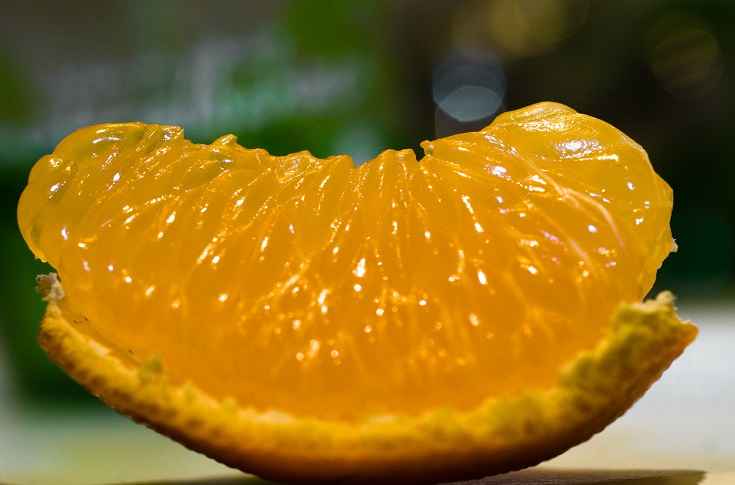Overview
As you know that citrus fruits are an excellent source of immune-boosting Vitamin C. This is the reason that many people in cold and flu season reach for these fruits. In this article, we will discuss the health benefits of citrus fruits that you need to know.
Many people are unaware of the health benefits of citrus fruits except for Vitamin C benefits. Some popular varieties of Citrus fruits include:
- Sweet oranges
- Mandarins
- Grapefruit
- Limes
- Lemons
- Other kinds such as Citron, sudachi, and yuzu
Citrus fruits and stomach cancer
Citrus fruits help the body in the fight against ulcers and stomach cancer. Intake of only 100g. Citrus fruits in the diet reduce the risk of stomach cancer by 40%. But eating 50 g per day reduces the risk by 23%, while the risk of any type of stomach cancer also decreases by 13%.
What is 100g? citrus fruit?
On average, one orange weighs about 130g. This means that if we eat only one orange a day, the required limit of 100g can be exceeded by day.
What if you ate two oranges a day?
Even better. One can only assume that increasing the dose will reduce the risk of stomach cancer even more. Do you have Allergy to Strawberry?


Citrus fruits fight against destructive bacteria H. pylori
Helicobacter pylori is a type of bacteria that often attacks the stomach wall. It is often associated with a large number of cases of ulcers. In addition to being associated with ulcers, H. pylori are also associated with about 74% of gastric cancer cases.
Most people have H. pylori in their stomach. However, research has established more destructive forms of H. pylori that can occur in the stomach. These are Cag A-positive H. pylori that refer to the cytotoxin-related gene.
This particular type of H. pylori is highly resistant to most antibiotics. We discuss how this strain of H. pylori differs from most strains that naturally live in our body.
The point is that a diet rich in fresh citrus fruits reduces H. pylori infection.
Researchers from the University of Messina in Italy studied the relationship between citrus fruits, ulcers, and H. pylori infection. This includes laboratory studies to test citrus fruits against H. pylori.
Types of citrus that have shown successful results in the fight against H. pylori, as confirmed by several studies:
- Tangerines
- Oranges
- Lemons
These are the only types of citrus that have been tested against H. pylori. There are other citrus fruits that contain many of the compounds of the above-mentioned fruits.
Components in citrus that inhibit H. pylori include
- Neohesperidin
- Hesperetin
- Neoeriocitrin
- Naringin
- Eriodictyol
- Hesperetin
- Geranyloxyferulic acid
- Propionic acid
- Sudachitin
- Demethoxysudachitin
In addition to inhibiting H. pylori, research has shown that citrus also inhibits other bacteria, including E. coli, Pseudomonas, and Salmonella.
Citrus reticulata var. Noble
Research has shown that these citrus components work together to inhibit the growth of H. pylori. Some research also indicates that citrus fruits reduce the effectiveness of urease enzymes produced by H. pylori. By blocking urease enzymes, citrus helps to block the growth of this bacteria.
Health Benefits of Citrus Fruits Against Ulcer
Many studies have shown that citrus essential oils can significantly help prevent ulcers. What they discovered was the ability of citrus to ” feed the probiotic colonies in the gut. This makes citrus an effective prebiotic. “
Researchers have also found that pectin oligosaccharides present in the inner peels of citrus provide prebiotic properties.
Does this mean that you should eat the peel?
Yes and no. The rind is usually about 0.5 cm or more thick. It starts with the outer layer, which contains pigment, and ends with the fruit segment. Even when the peel is peeled, its thin layer still remains in a segment of the fruit.
Of course, eating more of the skin of these fruits is a good idea if the first layer is removed. A useful strategy could be to put citrus fruits in a blender along with other fruits.
Fresh fruit vs orange juice
The various plant compounds in fresh citrus provide a number of benefits. The main ones are stimulation of a healthy stomach, inhibition of H. pylori, and prevention of cancer cell growth.
It should be noted that pasteurized citrus juices do not always retain the same properties as fresh citrus fruits. This is because the pasteurization process removes many flavonoids and other critical compounds due to heat sensitivity.
Pasteurization also tends to increase the acidity of the juice. These acids can actually worsen the ulcerative condition. Besides, many of the useful ingredients are contained in the pulp and peel of citrus fruits. In the case of juices, these essential parts of the fruit are most often removed during processing.







